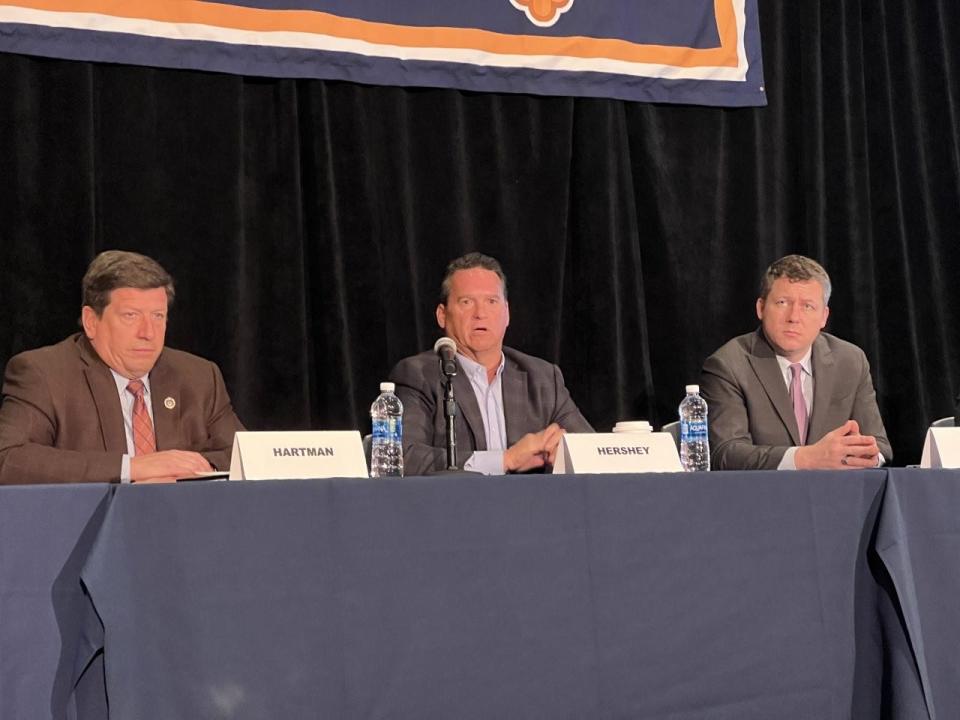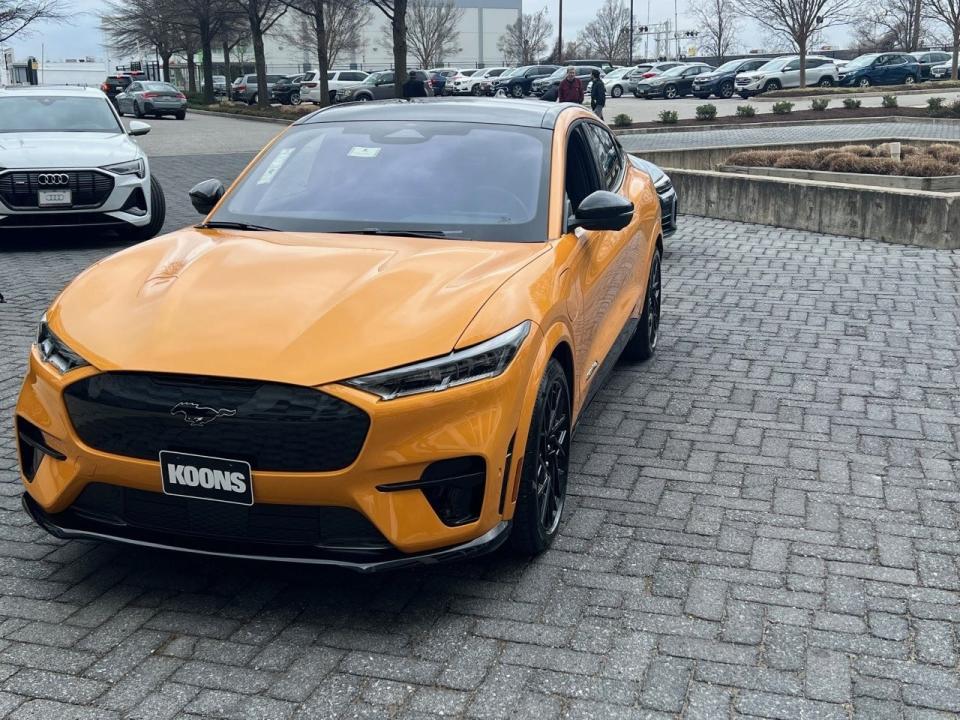Are fee increases for cars on the way? Transportation revenue commission releases report.
A legislatively mandated report on transportation revenue released this month recommended options for the Maryland General Assembly including a “new registration fee for electric and/or plug-in hybrid vehicles or increasing registration fees for all drivers.”
“The Maryland driver needs to look closely at the steps that we’re taking,” said one member of the Maryland Commission on Transportation Revenue and Infrastructure Needs, in an interview after the interim report was published.
The state Legislature is scheduled to convene Wednesday for its planned 90-day session, and a pair of state senators indicated adjustments may be in the works based off the commission’s half dozen preliminary recommendations. The commission’s final report is due on or before Jan. 1, 2025, but action on transportation revenue affecting Marylanders' pocketbooks may come this legislative session.
Senate minority leader says 'timing is right'

“I think the timing is right that we’re going to see some movement on having (owners of) electric vehicles pay their fair share,” said state Sen. Steve Hershey, R-Caroline/Cecil/Kent and Queen Anne’s, the Senate minority leader and the commission’s sole elected Republican member, in a Jan. 4 phone interview.
The report indicated a scenario with a $200 registration fee for electric vehicles and hybrids, which could potentially contribute $40 million in revenue in fiscal 2025. It currently costs anywhere between $135 and $187 to register most vehicles for two years, depending on a vehicle's weight.
(A Motor Vehicle Administration estimate cited in the report showed a $220 fee per electric vehicle registration would be an “accurate proxy” for the average annual gas tax payments contributed by an owner of a non-electric vehicle in Maryland.)
After a plan for the state’s transportation projects for the Fiscal Years 2024-2029 by the Maryland Department of Transportation showed a $2 billion shortfall last year, the Vice-Chair of the Senate committee on Budget and Taxation, Sen. Jim Rosapepe, D-Prince George’s/Anne Arundel, called the commission’s recommendations, such as calling for a “balance draft” plan, “good recommendations and I think the administration can do it without legislative action.”
Asked if the administration (of Democratic Gov. Wes Moore) would be able to increase a fee on (owners of) electric vehicles without legislative approval, Rosapepe said: “If we need the legislative action, I’m sure we’ll take it up.”
More: As Moore administration races ahead with clean cars, state far behind goal
The commission’s tall task: Making up project shortfall

Jim Kercheval, the commission member who in a Jan. 4 phone interview urged Maryland drivers to pay attention to the body’s work, said a fee on electric vehicles “replaces a small part, but not all” the money needed to fill the transportation project shortfall.
The Executive Director of the Greater Hagerstown Committee and former Washington County Commissioner Kercheval described a system that has worked “for decades,” where roadway users pay into the Transportation Trust Fund through registration fees and a gas tax in proportion to how much they use.
“The challenge is: As cars become more fuel efficient,” he said, “the gas tax (revenue) has been dropping steadily.”
Rosapepe, a Democrat, posed the question this way in a Jan. 4 phone interview: “How do you make the numbers work for the long run to make investments (that) we need in transportation?”
One commission recommendation called for adjusting toll rates on out-of-state E-Z Passes to maximize toll revenues in order to support projects in Maryland’s broader transportation system.
Hershey, a Republican, questioned the constitutionality of that recommendation on the grounds of the Commerce Clause.
More: Funds shifted by MD for roads that received federal Bipartisan Infrastructure Law cash
How to fairly fund mass transit systems?
With two metro transit systems receiving state funding, Hershey expressed his disappointment with the commission’s work regarding mass transit systems in Maryland during the four-month period that the group met late last year.
“We should have taken a more in-depth look at what I believe is really draining the Transportation Trust Fund,” said Hershey, referencing the Washington Metropolitan Area Transportation Authority and mass transit in the Baltimore area.
Earlier this year, Moore announced plans to invest in east-west transit in the Baltimore region, which has been rated as below average by area advocates for years.

As for the metro rail system currently up and running in the D.C. suburbs, Maryland contributed over $400 million in subsidies last year to the Washington Metropolitan Area Transportation Authority. In November, rail ridership was at about 55% of pre-pandemic levels on weekdays, according to data from the Authority.
“I have growing concerns that we’re adding more transit projects that are proven to lose money,” said Kercheval, one of two non-elected commission members representing rural areas. He also discussed potential changes to the scoring system that’s been used to rank transportation projects, indicating his view that road projects and mass transit projects should be categorized differently.
Three of the six recommendations in the interim report related to that prioritization process. The Maryland Department of Transportation said they intend to develop a system to “evaluate project benefits in terms of meeting state transportation goals relative to cost” in a release last month.
More: With gas tax revenue diminishing, Maryland commission meets to find new revenue for roads
‘…There’s a lot more work to do’
Rosapepe, whose district’s northernmost part is about halfway between D.C. and Baltimore, said there has been a shift in commuter patterns in recent years that must be considered.
“The Washington Metro system was designed to be a commuter transit system, assuming that most people would live in the suburbs,” Rosapepe said. “The commuter role of transit, and frankly the commuter role of roads as well---just sort of suburbs to the central city---is obviously less than it was, and I think it’s going to be less in the future.”
The four-term state senator, who said he attended several commission meetings (though not one of the six elected officials serving), said the commission’s hearings so far were “very substantive.” As for the report, he said: “It makes the point that there’s a lot more work to do.”
More: Eastern Shore, Southern and Western Maryland attract residents departing metro areas
Dwight A. Weingarten is an investigative reporter, covering the Maryland State House and state issues. He can be reached at [email protected] or on Twitter at @DwightWeingart2.
This article originally appeared on Salisbury Daily Times: Maryland legislative preview: Are increased fees for cars on the way?
